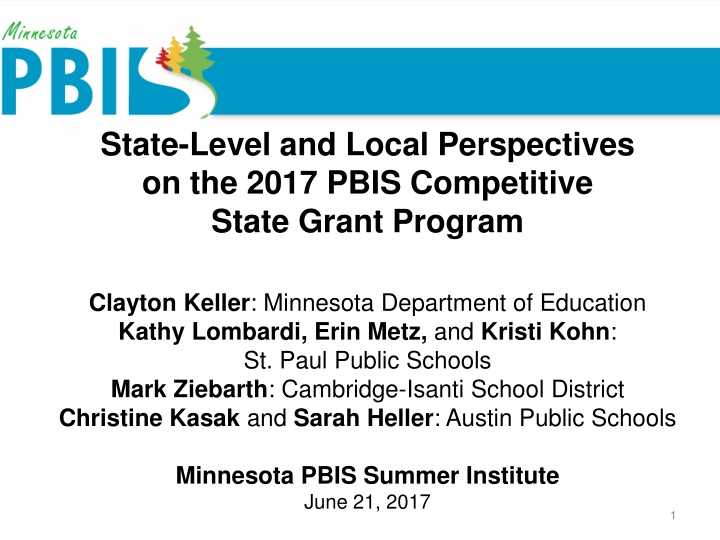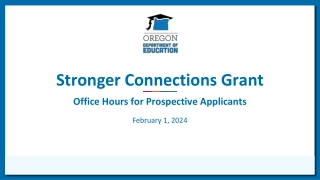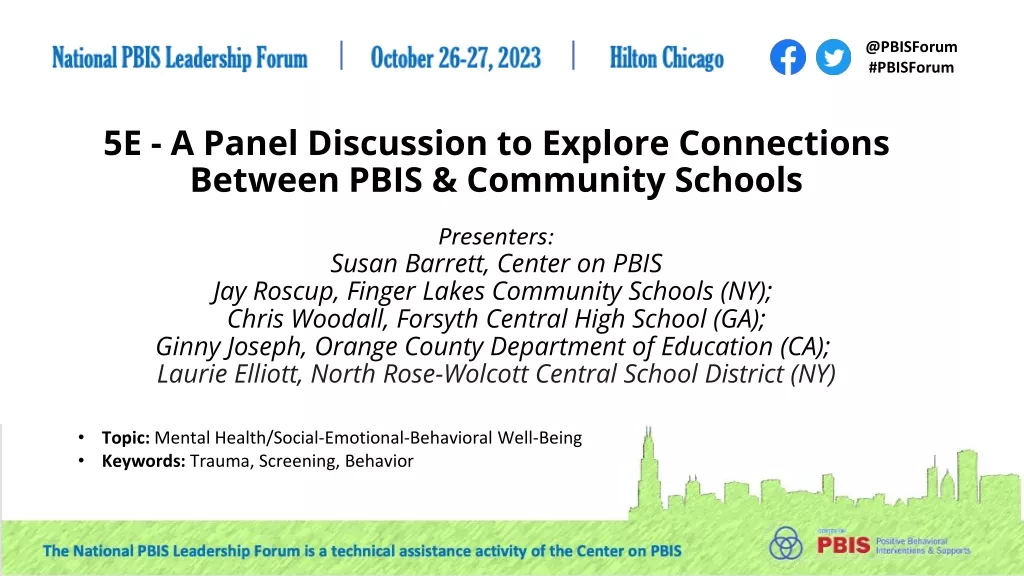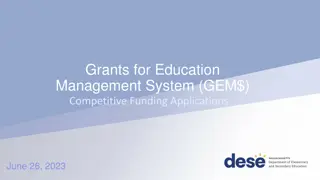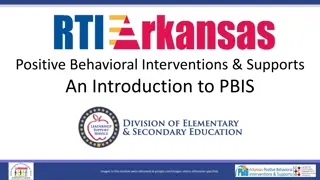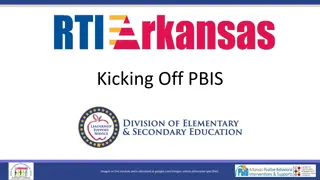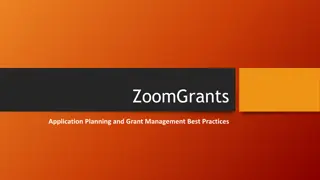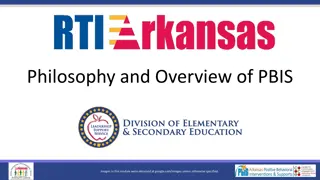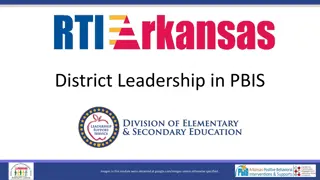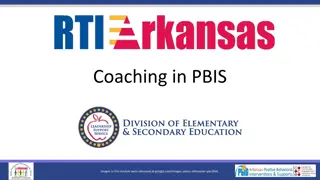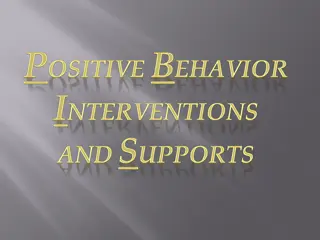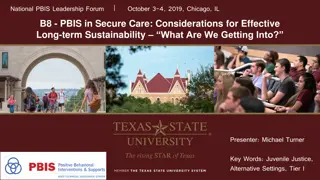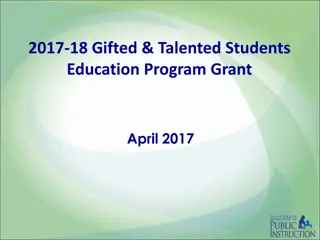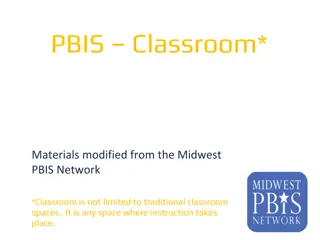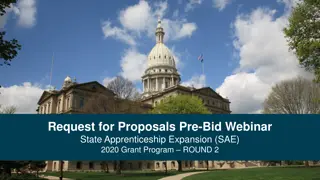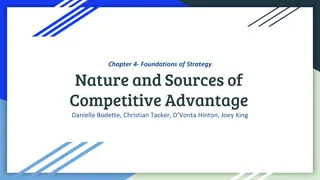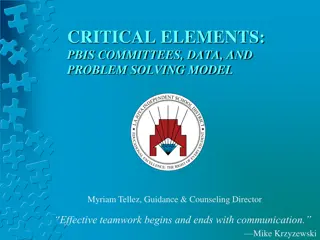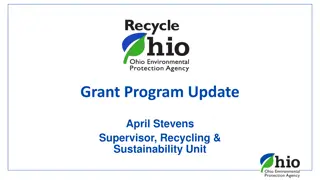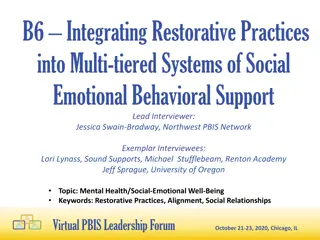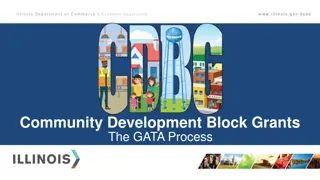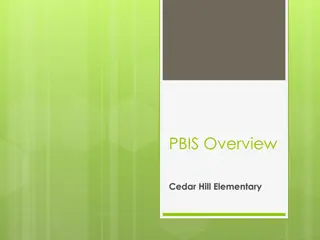Insights on 2017 PBIS Competitive State Grant Program
State-level and local perspectives on the 2017 PBIS Competitive State Grant Program in Minnesota. Learn about the grants awarded, PBIS training in schools, exemplar districts, and schools supported by the program.
Download Presentation

Please find below an Image/Link to download the presentation.
The content on the website is provided AS IS for your information and personal use only. It may not be sold, licensed, or shared on other websites without obtaining consent from the author.If you encounter any issues during the download, it is possible that the publisher has removed the file from their server.
You are allowed to download the files provided on this website for personal or commercial use, subject to the condition that they are used lawfully. All files are the property of their respective owners.
The content on the website is provided AS IS for your information and personal use only. It may not be sold, licensed, or shared on other websites without obtaining consent from the author.
E N D
Presentation Transcript
State-Level and Local Perspectives on the 2017 PBIS Competitive State Grant Program Clayton Keller: Minnesota Department of Education Kathy Lombardi, Erin Metz, and Kristi Kohn: St. Paul Public Schools Mark Ziebarth: Cambridge-Isanti School District Christine Kasak and Sarah Heller: Austin Public Schools Minnesota PBIS Summer Institute June 21, 2017 1
Background Minnesota Laws of 2016 authorized a onetime appropriation of $2,750,000 to MDE in 2017 for implementation of schoolwide PBIS in schools and districts throughout Minnesota to reduce the use of restrictive procedures and increase use of positive practices. Approximately $2,000,000 was set aside for the PBIS Competitive State Grant Program. Grants ranging from $2,050 to $160,000 were awarded to 68 districts to support PBIS efforts in 347 schools. 2
68 PBIS Grants By region North: 26 Metro: 18 South: 24 By PBIS experience in districts > 60% of the schools: 18 1-59% of the schools: 29 No schools: 9 Charters: 12 3
PBIS Experience in the Grants Schools 347 schools 56.2% (195) have received PBIS training in Cohorts 1-12 43.8% have NOT received PBIS training 6.3% (22) accepted for Cohort 13 37.5% (130) have neither received nor are signed up for PBIS training 5
Well-Represented in 2017 Exemplar Districts and Schools All 3 Exemplar PBIS Districts: St. Paul, St. Cloud, Eastern Carver 80.5% (33/41) of the Exemplar Sustaining PBIS Schools South Education Center Academy Heritage E-STEM Magnet School Farnsworth Aerospace PK-4 Magnet Lincoln Park Middle School Chanhassen High School Kennedy Community School Pleasantview Elementary School North Education Center Academy Linwood Monroe Arts Plus (Lower Campus) Oak Hill Community School Apollo High School St. Paul Music Academy Technical High School Murray Middle School Princeton Intermediate Westwood Elementary School Battle Creek Middle School Madison Elementary School Highland Park Middle Talahi Community School Wyoming Elementary School Linwood Monroe Arts Plus (Upper Campus) Phalen Lake Hmong Studies Magnet School Lake Park Audubon Elementary School South Junior High School West Education Center Washington Technology Magnet Epsilon School Chaska Middle School West Como Park Elementary School Farnsworth Aerospace Upper Campus 5-8 Highwood Hills Elementary Rice Lake Elementary 6
Goals of the PBIS Grants Begin, develop PBIS (6) Implement, improve, advance PBIS (26) Tiers II and III (11) Improve student outcomes (9) Improve use of data (5) Add interventions to complement, enhance PBIS (15) Community, parents, environment (9) Disproportionality, cultural responsiveness (4) 7
Approaches Used in the PBIS Grants Incentives, recognition, rewards, celebrations, materials, room (22) Professional development (18) Planning, meetings, development (14) Videos, online modules (5) Coaching (4) Training for staff, paraprofessionals, bus drivers (3) Leadership team (3) 8
Initial Outcomes Good progress on one of the goals of the funding Increase the use of positive practices How do we know? 9
Many Schools Assessed Their PBIS Fidelity Percentage Of District Grantee Schools Assessing PBIS Fidelity In FY17 TFI,Not Trained: 18% No TFI: 38% TFI,Trained: 44% 10
PBIS Was Implemented With Fidelity Percentage of District Grantee Schools with TFI Tier 1 at 70% Fidelity in FY17 TFI Tier 1 Averages of District Grantee Schools in FY17 100% 100% 90% 90% 80% 80% 69% 70% 70% 64% 63% 60% 60% 54% 50% 50% 40% 40% 30% 30% 20% 20% 10% 10% 0% 0% Tier 1 Fall Tier 1 Spring Tier 1 Fall Tier 1 Spring 11
Local Perspectives for Other Outcomes What were the needs related to PBIS implementation or student behavior that you were seeing in your district that you felt needed addressing, especially through a more flexible funding source like this PBIS grant? What were the goals you targeted with your project to meet those needs? What activities did you undertake to achieve those goals? How did you use data from sources like the TFI to support planning and improvement activities? How did you differentiate support for schools based on their PBIS experience? What outcomes did you achieve in terms of (a) PBIS implementation, (b) student outcomes, and (c) any others you collected? What s your evaluation of your project, and why? E.g., successful for these components, jury s still out until we implement some parts in 2017-18, etc.? What s next in 2017-18 as a result of your project? 12
